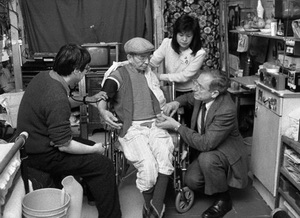Philip, who at 85 recently passed away in his Bronx, New York home did what few other doctors do. He became a doctor to the poor and the homeless.
It began in 1969 when Philip and his colleagues at St. Vincent's Hospital in New York realized they were getting a flood of elderly and sickly men in the emergency room.
It turned out the men were coming from a nearby rundown hotel that housed 1200 men, including drug addicts and recently released convicts. They each lived in a 6 by 8 foot chicken wire and cinder block cubicle.
When Philip and his colleagues went to this hotel, they saw severe health issues and also injuries inflicted by some of the stronger men on the weaker ones.
Philip setup a "free clinic" at that hotel, which he and his colleagues operated three times a week. He formed teams, comprised of a doctor, nurse, social worker and electrocardiograph technician, to call on them.
Philip also added daily visits to the sickest.
This was the start of Philip providing free medical care to the poor and doing it where they lived.
Over time his patients included people who were homebound by physical limitations, including in some cases, the infirmities of old age, as well as disabled children and AIDs patients.
Why did he do this? "There is no point in a doctor in a clinic telling someone to go home, elevate her leg and take antibiotics when she has no home and no money," Philip told The Boston Globe in a 1990 interview.
One of Philip's greatest achievements was during the 1980's when he ran a pilot program in 19 cities, providing medical care to the homeless.
This pilot program led to the McKinney-Vento Homeless Act of 1987, providing extensive medical care to shelters and food lines, patterned on Philip's work.
Today, this law, its amendments, and newer programs provide services in 249 cities.
For Philip, it came down to this: He was a strong advocate of doctors, black bags in hand, going anywhere patients needed them. And by his actions he set the example.


